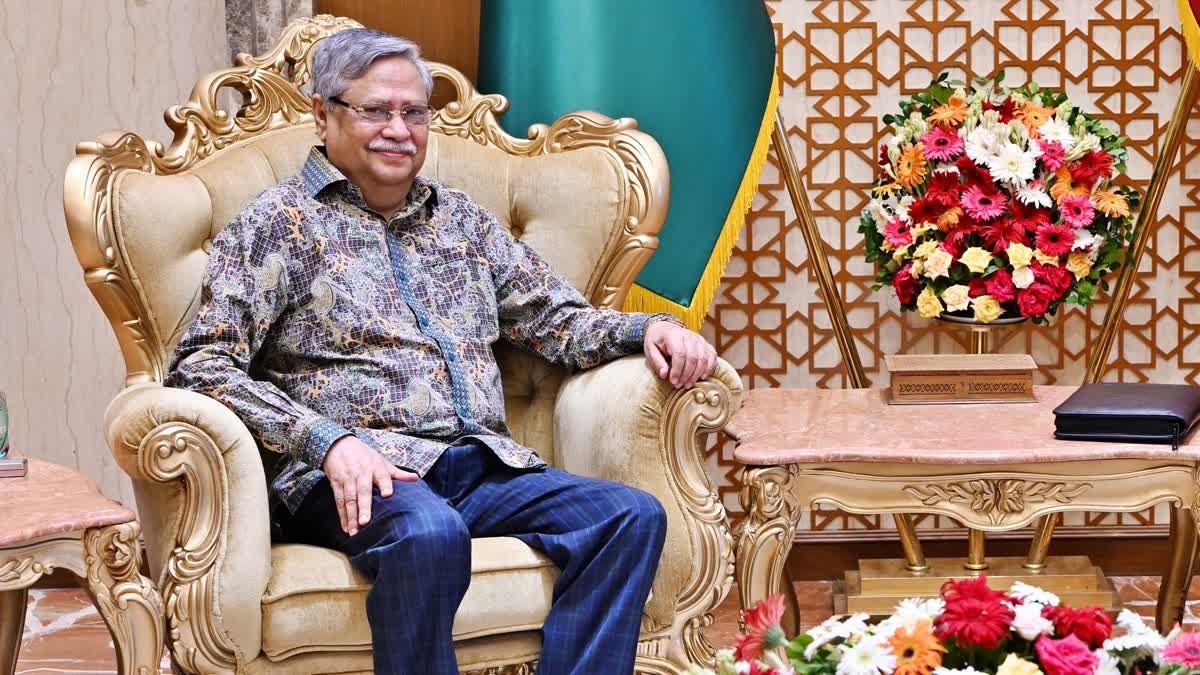New Delhi: Even as Bangladesh is recovering from a mass uprising that saw the ouster of Prime Minister Sheikh Hasina in August this year, a fresh controversy has broken out raising a question -- whether President Mohammed Shahabuddin should continue in office.
This development comes after Shahabuddin, in what is being described as an “informal interview” with a journalist, said that he did not receive any formal resignation letter from Hasina before she fled to India on August 5 following the mass uprising.
Contradicting statements
Shahabuddin said that on the morning of August 5, amid unrest in the country, he was informed that Hasina would be coming to meet him at his official residence, Bangabhaban. However, he was later told that she would not be coming after all. “Perhaps she did not have the time,” the President was quoted as saying.
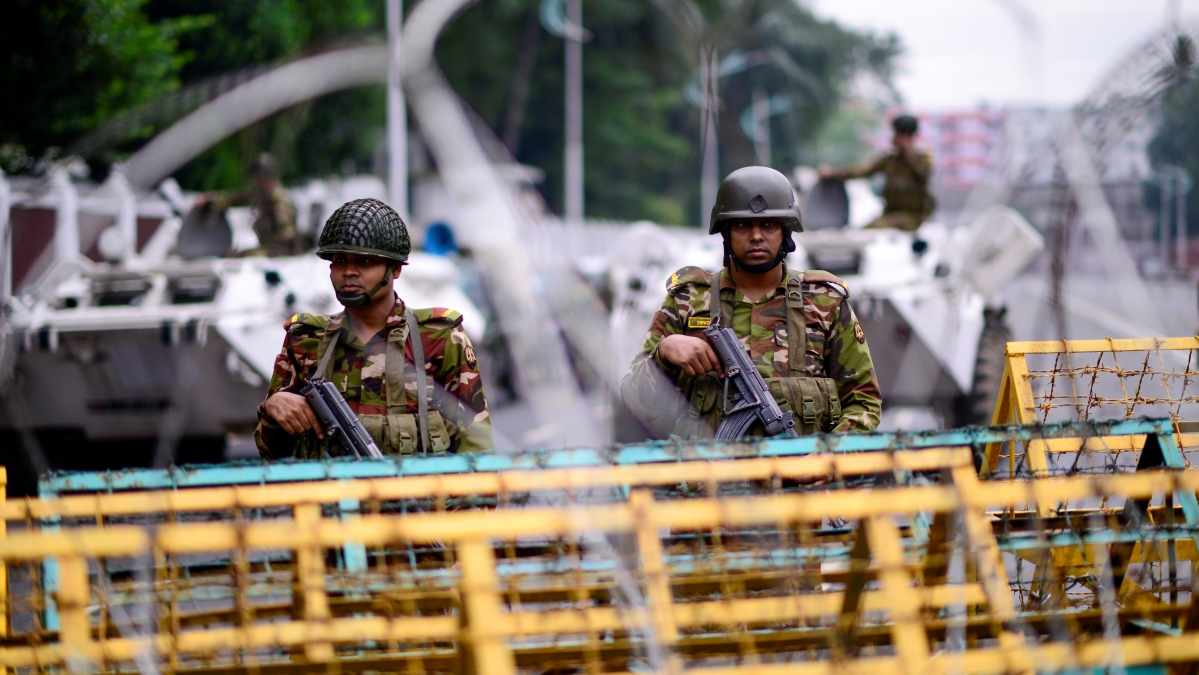
Following this, one day the cabinet secretary came to him to collect a copy of Hasina’s resignation letter. Shahabuddin replied that he was still looking for it.
What Shahabuddin said in the interview with the journalist was in contradiction to his address to the nation at the time of Hasina’s ouster. At that time, he had said that Hasina had submitted her resignation which he had accepted.
Shahabuddin's resignation sought
That is why there are now calls for the President’s resignation by various groups, including the Anti-Discrimination Student Movement, which initiated the uprising that eventually led to Hasina’s ouster. Security forces had to resort to opening fire when students staged a demonstration outside Bangabhaban on Tuesday evening.
However, there are constitutional challenges to making the President resign. Following Hasina’s ouster, Shahabuddin dissolved the country’s parliament on August 6 and installed an interim government on August 8 with Nobel laureate Muhammad Yunus as the Chief Adviser.
However, the interim government itself is extra-constitutional. Though there was a provision in the constitution earlier for the installation of interim governments in between elections, the system was abolished in 2011 when Hasina was the Prime Minister.
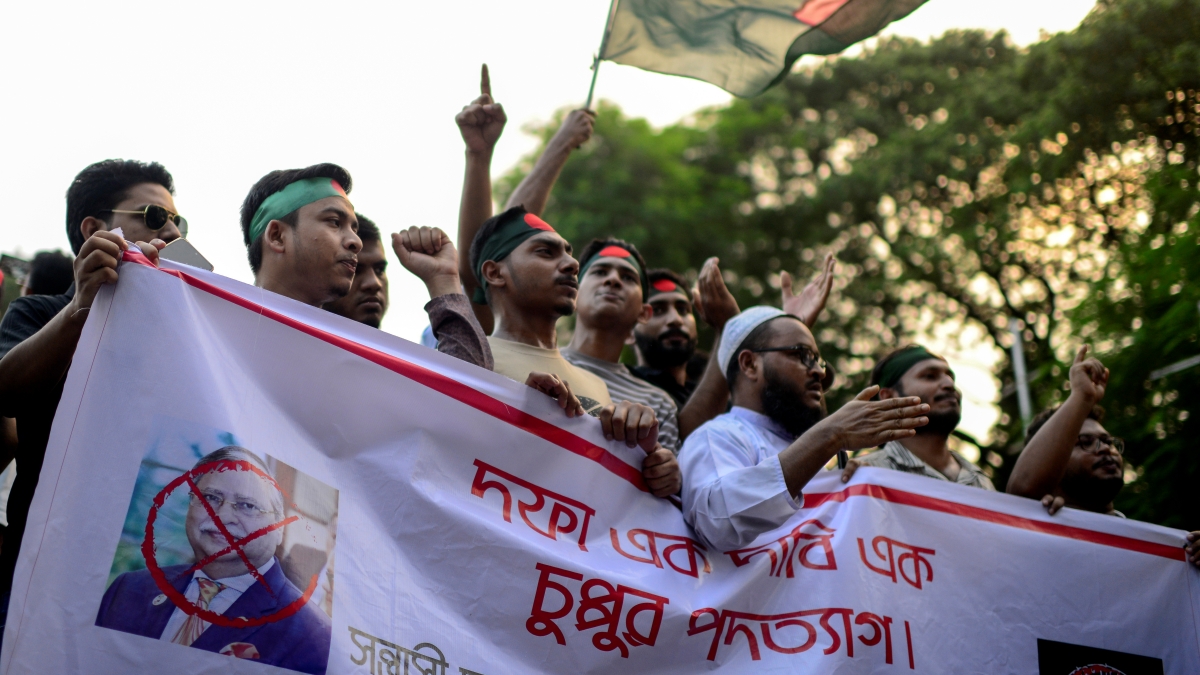
Interim government's stance
According to Nahid Islam, Information and Broadcasting Adviser in the interim government, the resignation of President Sahabuddin is a political decision that will be made within a reasonable timeframe, based on public sentiment.
“We formed the government on August 8 to ensure stability and security for the state,” Islam, who was one of the leaders of the Anti-Discrimination Student Movement, told reporters in Dhaka on Wednesday. “However, if the people feel that this setup needs to change, the government will certainly consider that. The president's resignation is not a legal issue but a political one.”
Meanwhile, Shafiqul Islam, press secretary to Chief Adviser Yunus, said that the government has not taken any decision regarding the resignation of the President. “Various demands arise from different quarters. We cannot respond to all of them,” he told reporters on Wednesday.
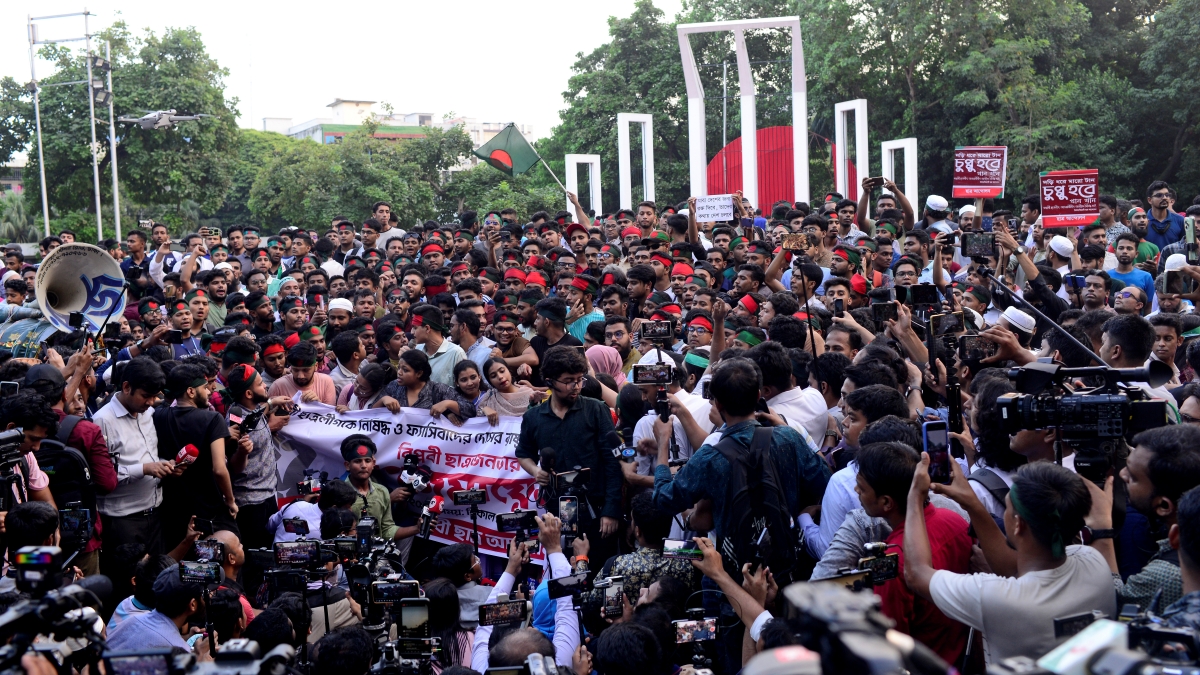
'Resignation is technical tangle'
Bangladeshi academic and political observer Sharin Shajahan Naomi, however, dismissed the issue of the President’s resignation as a technical matter.
“People are not bothered about whether the President should stay or resign,” Naomi told ETV Bharat over the phone from Dhaka. “Not many people are joining the demonstrations seeking the President’s resignation. It is up to the President’s discretionary power to resign.”
She said that people are more concerned about other burning issues like the recent floods that caused heavy damage, the financial crisis the country is faced with, the rise in prices of essential commodities and the deteriorating law and order situation.
“Currently, some people’s sentiment is for the army to take power,” Naomi said. “It has happened in Bangladesh before too. Whenever there is anarchy, people want the army to take charge. They want a strong central command.”
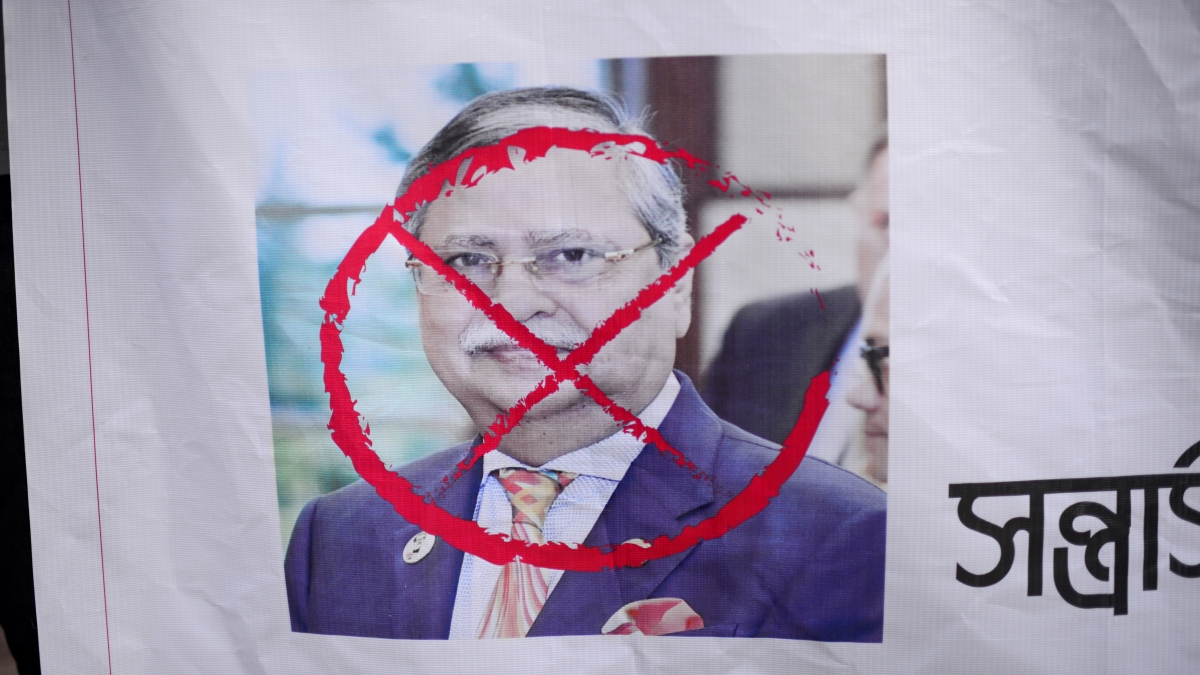
'Interim government wants to stay'
According to Dhaka-based journalist Saifur Rahman Tapan, people do not see the interim government as an elected government.
“There is a growing demand to hand over power to an elected government,” Tapan told ETV Bharat. “However, the interim government wants to stay and introduce reforms across various sectors.”
He said that the interim government has set up 10 separate commissions to introduce reforms in 10 sectors including labour, economy, banking system, police, and electoral and administrative systems. “However, people are not willing to wait for long for such reforms,” he said.
According to Tapan, with Hasina’s Awami League party ousted from power, the other major political party in the country, the Bangladesh Nationalist Party (BNP), is feeling that is their turn to get power.
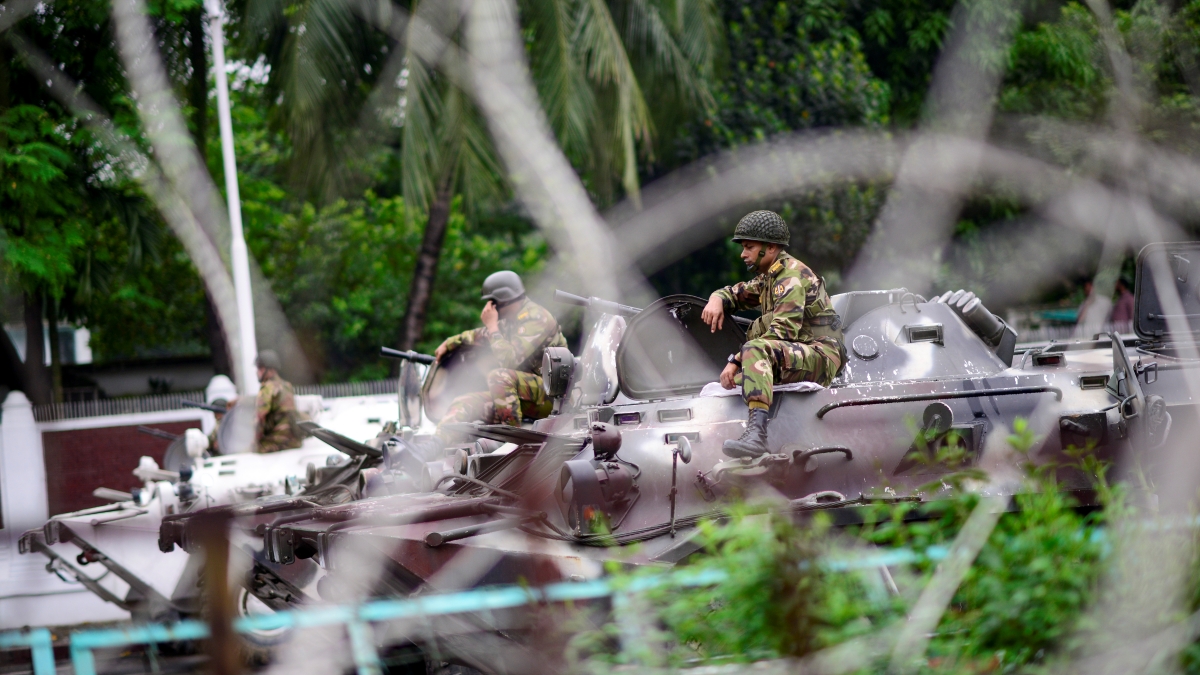
'Resignation will delay elections'
“The BNP feels that if elections are held, they will easily win,” he said. “On Wednesday morning, three top BNP leaders met Yunus and asked him not to go forward with the demand for the President’s resignation. They think that if the President resigns, elections will be delayed.”
Tapan also said that the Anti-Discrimination Student Movement no longer enjoy popularity among people as it had before August 5. “People are more worried about the rise in prices of essential commodities and the declining law and order situation,” he said. “The government has utterly failed on these two fronts.”
Tapan further stated that people are unhappy with the interim government and its supporters. “The interim government should focus on holding elections which is its mandate,” he said. “The country’s intelligentsia has told the interim government that, at best, it can suggest reforms and not implement these.”
Meanwhile, in a related development on Thursday, the appellate division of the Supreme Court of Bangladesh has set November 17 as the date for hearing three review petitions challenging the annulment of the 13th amendment of the constitution that abolished the interim government system.
The mandate of a constitutionally valid interim government is to hold elections within 90 days after assuming power.
Read More:
